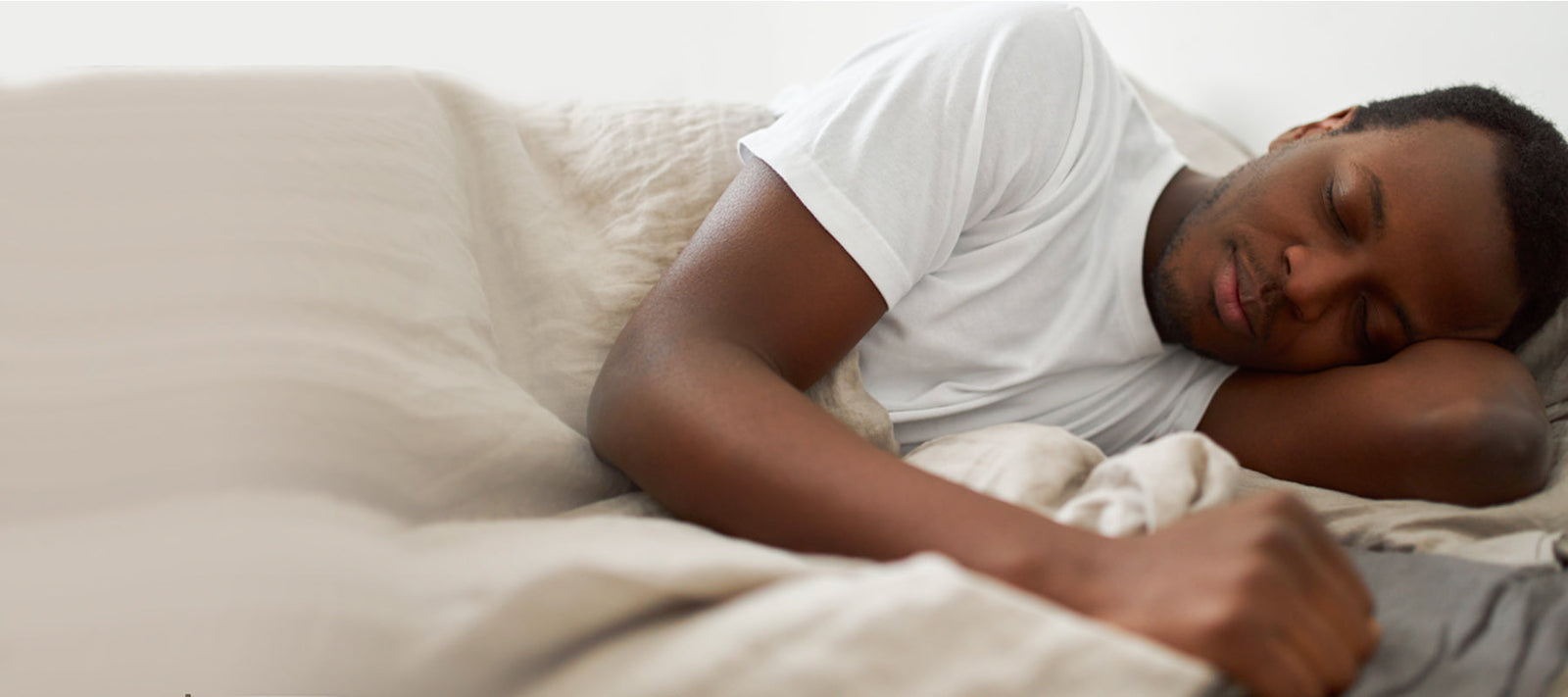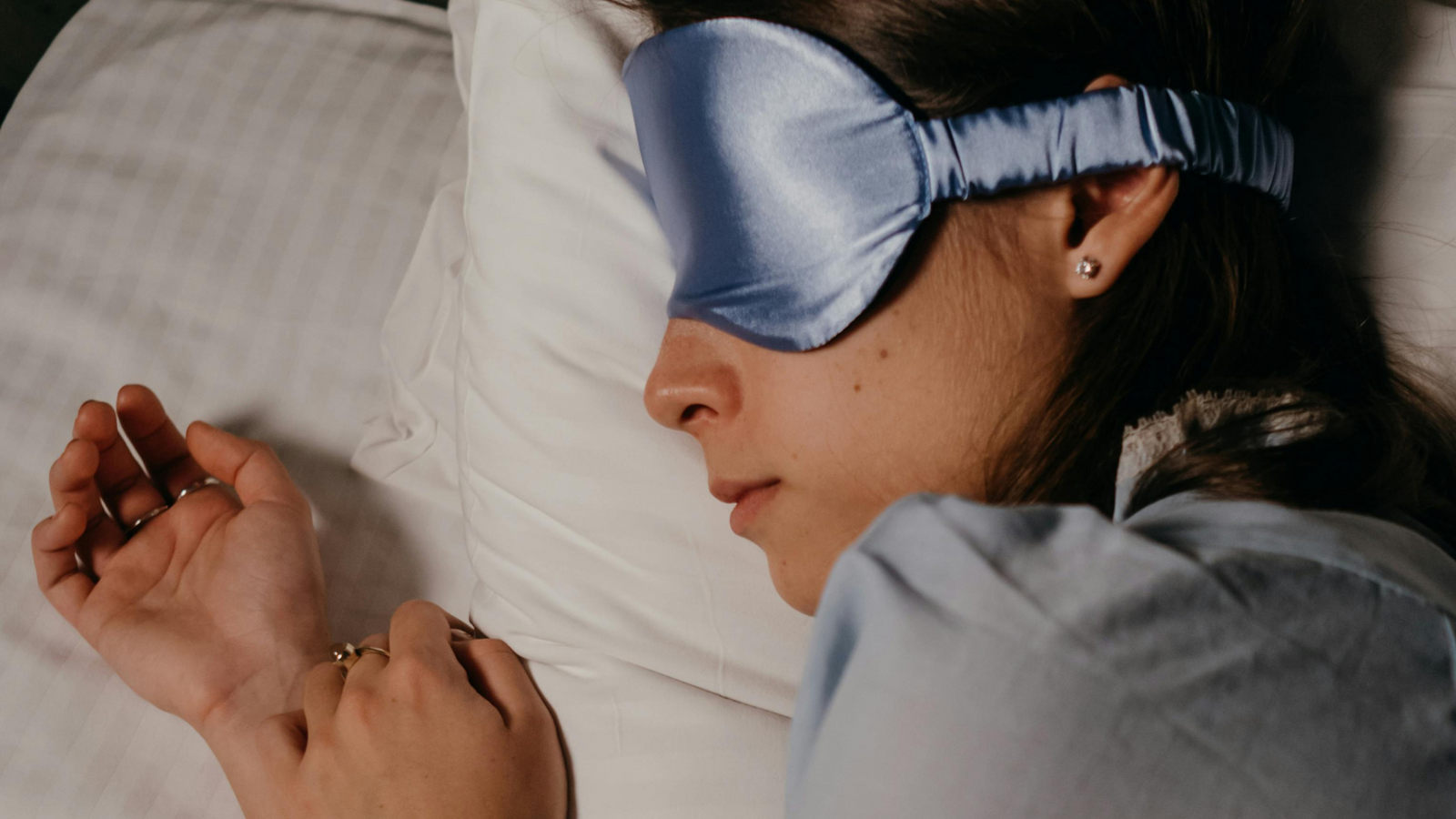Your Cart is Empty
Buy now, pay later or in 3 with Klarna
Get free shipping by subscribing to newsletter!
Fast shipping from our warehouse in the UK!
Buy now, pay later or in 3 with Klarna
Get free shipping by subscribing to newsletter!
Fast shipping from our warehouse in the UK!

How to Sleep Better: Tips for Better Sleep
There’s a reason why you wake up in the morning after a good night’s rest feeling energized and ready to take on the day ahead. Good sleep is necessary to live a happy and healthy life! Why is sleep important, you ask? There are endless benefits of getting good sleep. Good sleep can boost your immune system, it can help prevent weight gain, it can improve your mood- and that’s just naming a few. In a dream world, you would fall asleep as soon as your head hits your pillow and wake up feeling refreshed and well-rested. But unfortunately, getting good sleep isn’t always so easy. It goes more like this: you lie in bed for hours at night, unable to get your body and mind tired enough to fall asleep. And when you finally do manage to get some shut eye, you spend the entire night twisting and turning and wake up feeling groggy and frustrated. Trust me, we’ve all been there. There’s nothing worse than a bad night’s rest.
But bad sleep can have serious consequences for your long term health. Chronic sleep deprivation can lead to high blood pressure, diabetes, depression, and more. So yes, it’s very important to prioritize your sleep. Figuring out how to sleep better requires a lot of trial and error- what works for one person might not work for someone else. So it’s important to do your research to determine how to sleep better at night. And in the meanwhile, check out these tips for better sleep:
How to Sleep Better: 10 Tips

1. Keep the same schedule
One of the best ways to guarantee a good night’s rest is to create a routine and go to sleep at the same time every night. When you go to bed at 10 p.m. one night at 2 a.m. the next, you completely throw your body off course. So instead, make an effort to keep the same schedule and go to bed at the same time every night. Creating a nighttime routine can help to relax your mind and body and get you ready to sleep. While it might be difficult at first to trick your body into getting tired at the same time every night, you will get used to it eventually. Maintaining the same sleep schedule can help you fall asleep faster and sleep more soundly throughout the night. Just build bedtime into your routine and you won’t think twice about it.

2. Watch your exposure to light
There are many ways to help you sleep, one of which is limiting your exposure to light before bed. Light has a huge impact on your sleep and might just be the cause of all your restless nights. Light impacts your circadian rhythm, which is your 24-hour internal alarm clock that controls your sleep. When you see light, your brain is told that it’s daytime, which can completely throw off your sleep schedule. This light, called blue light, typically comes from your phone, laptop, or TV. So to reduce your exposure to blue light, make it a point to put down your phone and turn off electronics at least 2 hours before bed. If you have to use technology before bed, be sure to wear blue light glasses to protect your eyes. Taking these steps to reduce your exposure to light will seriously improve your quality of sleep.
3. Don’t drink caffeine late in the day
I know, sometimes you just really want that midday coffee pick-me-up, but you’re going to regret it when you’re lying in bed wide awake all night. As tempting as the 3 p.m. coffee may sound, do your best to resist the temptation. Save coffee for the morning and stick to water later in the day. Caffeine can interfere with your circadian rhythm if it’s consumed too closely to bedtime. Caffeine typically lasts for 4-6 hours in the body, but every person reacts differently. Drinking coffee late in the day can impact your sleep time, efficiency, and satisfaction levels. If you have trouble staying asleep or falling asleep all together, do not drink caffeine late in the day.

4. Try not to nap
Napping is undeniably tempting. After a stressful day at work, sometimes the only thing you want to do is get into bed and take a quick nap. But that’s the problem with naps- they’re never as quick as you want them to be. You tell yourself you’ll just rest your head for a quick 20 minutes, but then all of a sudden you wake up, groggy and confused, and realize two hours have passed. So toavoid this inevitable scenario all together, try not to nap. If you’re struggling with how to sleep longer at night, it might just be because you’re napping throughout the day. You should only consider a nap if you experience sudden sleepiness you can’t fight or if it’s part of your daily routine. In all other circumstances, try your best to avoid the urge to nap!

5. Exercise during the day
If you’re wondering how to sleep better, it starts with living a healthy lifestyle. And that means exercising daily. Exercise can help you get better sleep as it causes the body to release endorphins which reduce stress. However, the timing of your workouts matters. Although it’s good that exercise releases endorphins, working out too late in the day can cause you to feel more alert. It’s recommended to work out at least 2 hours before bed so any effects can wear off before you go to sleep. Try to workout in the morning or in the early afternoon and avoid nighttime workouts all together.

6. Limit alcohol
Not sure how to improve your sleep? Take a look at how much alcohol you’re consuming. Consuming alcohol in excess can have a serious impact on your sleep. When someone drinks, the alcohol is absorbed into their bloodstream, which enzymes in the liver will eventually metabolize. However, this is a slow process, and when someone drinks in excess, that alcohol will continue to just circulate throughout their body. This alcohol that stays in someone’s system can ultimately disrupt and decrease their sleep quality. Alcohol also impacts the four stages of sleep, which are: three non-rapid eye movement (NREM) stages and one rapid eye movement (REM) stage. Consuming alcohol close to bedtime can disrupt these stages by making you fall into a deep sleep too quickly, which can cause you to have a poor night’s rest.

7. Wind down before bed
Curious how to get a good night's sleep? Try winding down before bed. Winding down relaxes your body and mind and gets you ready for sleep. There are many ways you can go about this. Read before bed or listen to relaxing music. Use aromatherapy with candles and essential oils. Take a warm bath and get into comfy pajamas. Dim the lights in your room or turn on a relaxing night light. Drink a warm cup of tea or try meditating in bed. There are a myriad of ways you can wind down before bed- just figure out a method that works for you and stick to it!

8. Create a relaxing sleep environment
Creating a relaxing sleep environment is crucial in getting a good night’s rest. A good sleep environment can help you fall asleep quicker and improve your overall sleep quality. A relaxing sleep environment is dark, quiet, and comfortable. Make sure your room is dark and remove any sources of light. If you can’t sleep in a completely dark room, try wearing an eye mask. Reduce outside noises by wearing earplugs and turning off your phone and keep the temperature in your room cool.

9. Get a comfortable mattress and pillow
Your sleep is only going to be as good as the mattress and pillow that you use. It’s as simple as that. Investing in a good quality mattress and pillow can improve your sleep more than you realize. Using a comfortable mattress and pillow is especially important if you suffer from any health conditions, like acid reflux or chronic shoulder pain. MedCline offers a range of pillows that help relieve physical discomfort that may be negatively impacting your sleep. MedCline has an acid reflux relief system, which soothes nighttime reflux, a shoulder pain relief system, which helps you sleep more comfortably, and a therapeutic body pillow to help you get a good night's sleep. Investing in a good pillow and mattress will always be worth it.

10. Get back to sleep quickly if you wake up at night
Waking up throughout the night is inevitable. So if you find yourself in this situation, just try to get back to sleep as quickly as possible. Staying awake and going on your phone or watching TV is just going to disrupt your sleep stages even more and put you further off track. Instead, if you find yourself waking up in the middle of the night, do your best to immediately fall back asleep. Your body will thank you in the morning.
Getting good sleep is non-negotiable. Good sleep is how we wake up in the morning and live productive and healthy lives. You shouldn’t settle for a bad night’s rest! So now that you know how to get better sleep, you just have to do some trial and error to see what works for you. Follow these tips for better sleep and you’ll be on your way to waking up refreshed and energized in no time.



